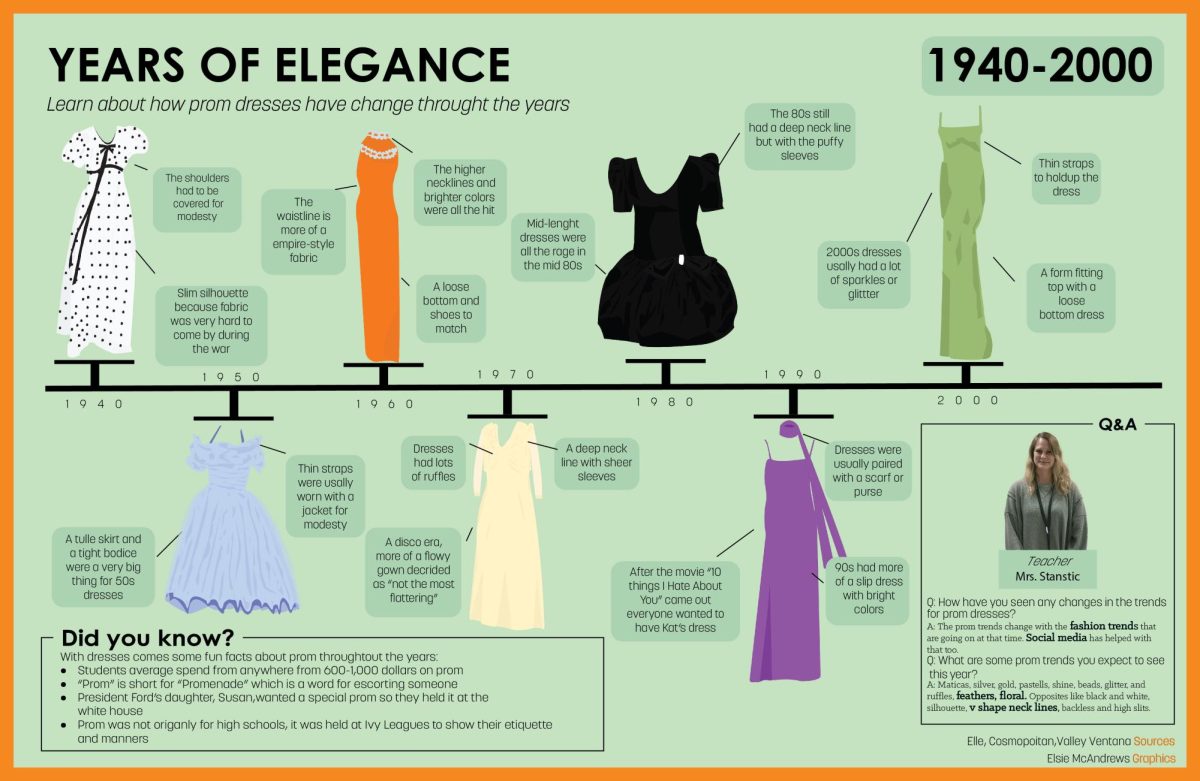By Chris Li and Yameen Hameed
<[email protected]>, <[email protected]>
Like many other students here, junior Amy Whittle has family overseas. Ever since Whittle moved to the United States, her relatives have come to this country to visit her. Recently, however, the situation has changed
“When we first moved to the United States, my grandparents, cousin and my godparents visited us, but no one has done so in about three years,” Whittle said.
Junior Jake Robinson shares a similar story. Most of his relatives live in Canada, but they only visit every so often. Robinson said they visit not only to see him and his nuclear family, but also because of the United States’ destinations for travel.
“There’s a lot to do with New York City and Disney World,” Robinson said. “A lot of world icons.”
This decrease of Robinson’s and Whittle’s extended family visits may be part of a trend. According to the U.S. Travel Association’s website, the number of foreign visits to the United States has been decreasing recently. Business teacher Jill Noel said that although people remain interested in America’s tourism aspects, money plays a large role in this shift.
“International prices have been rising,” Noel said. “The decrease in the number of airlines and seats available leads to the airline ticket prices increasing.”
According to Noel, the global recession is also leading to a lower value for the American dollar, creating high expenses for those in foreign nations wishing to travel internationally.
Whittle said the money is one reason why her family doesn’t visit as often.
“It’s really expensive for (foreigners) to get here,” Whittle said. “For example, the airplane tickets can be about 500 pounds. And then for them to get here from the airport, it can be another couple hundred (pounds).”
Robinson shares a similar viewpoint.
“The world economy is down, and politically the United States may be getting a bad rap because of its presence in the Middle East,” Robinson said.
Furthermore, the fact that security measures have been increased may also play a role in this trend. According to Noel, body scanners are being used more frequently now than before. Some people are satisfied with the increased security measures, she said, but others regard them as undesirable.
“Drastically, there has been increased security for those coming into the U.S. There are a lot of pros and cons on body scanners,” Noel said. “For example, some say there are risks of radiation involved with the body scanners. In addition, foreign visitors may be uncomfortable with the patting down procedures that airports have adopted.”
When Whittle moved to the United States, she said she, too, experienced the hassles of going through airports.
“We originally had to (go through multiple procedures), but now we are green card holders so we can just go through what normal citizens do,” Whittle said.
Although a combination of all these factors may have led to the recent decline in international travel to the United States, conversely, international travel from the United States remains one of the nation’s leading exports. Robinson said he travels outside the United States every three or four years. The immersion in foreign cultures and the multitude of experiences have been some of Robinson’s favorite aspects of international traveling.
“Just going to different countries where they speak a different language and eat different food (is) a change of pace from American culture,” Robinson said.
Robinson has been to Italy, France, England, Australia and Canada. Although he regularly goes to Canada to visit family, he went to the other countries primarily for sight-seeing purposes.
“My mom wanted me to see Italy,” Robinson said. “She lived in England for two years and saw other parts of Europe while she was there.”
Robinson said he saw the Tower Bridge and Big Ben when he was in London. However, his favorite trip was to Australia, where he watched his sister compete in the Deaf Olympics for swimming. He also saw the Great Barrier Reef, Sydney and various areas along the eastern coast. But Robinson said he does not believe the famous landmarks themselves are the only reason to travel.
“(Tourist sites) are a major motivation, but going out of the country is a different experience,” Robinson said. “It’s cool to say you’ve been to places and it gives you a unique cultural experience.”
According to Noel, money once again may play a role in why more Americans travel abroad.
“With the global recession, it would probably be cheaper to fly internationally than domestically,” Noel said. “A lot of places are lowering their costs to fly internationally and to stay in hotels.”
However, Noel said, many still believe the benefits of traveling outweigh the disadvantages.
“Although money can be an issue, people still want to experience what it’s like to travel internationally,” Noel said.



















































![Review: “Suits” is a perfect blend of legal drama and humor [MUSE]](https://hilite.org/wp-content/uploads/2024/04/unnamed-1.png)
![Chelsea Meng on her Instagram-run bracelet shop [Biz Buzz]](https://hilite.org/wp-content/uploads/2024/04/IMG_2446-1200x838.jpg)
![Review: Quiet on Set: The Dark Side of Kids TV is the long awaited exposé of pedophilia within the children’s entertainment industry [MUSE]](https://hilite.org/wp-content/uploads/2024/04/unnamed.jpg)
![Review: “The Iron Claw” cannot get enough praise [MUSE]](https://hilite.org/wp-content/uploads/2024/04/unnamed.png)
![Review: “The Bear” sets an unbelievably high bar for future comedy shows [MUSE]](https://hilite.org/wp-content/uploads/2024/03/unnamed.png)
![Review in Print: Maripaz Villar brings a delightfully unique style to the world of WEBTOON [MUSE]](https://hilite.org/wp-content/uploads/2023/12/maripazcover-1200x960.jpg)
![Review: “The Sword of Kaigen” is a masterpiece [MUSE]](https://hilite.org/wp-content/uploads/2023/11/Screenshot-2023-11-26-201051.png)
![Review: Gateron Oil Kings, great linear switches, okay price [MUSE]](https://hilite.org/wp-content/uploads/2023/11/Screenshot-2023-11-26-200553.png)
![Review: “A Haunting in Venice” is a significant improvement from other Agatha Christie adaptations [MUSE]](https://hilite.org/wp-content/uploads/2023/11/e7ee2938a6d422669771bce6d8088521.jpg)
![Review: A Thanksgiving story from elementary school, still just as interesting [MUSE]](https://hilite.org/wp-content/uploads/2023/11/Screenshot-2023-11-26-195514-987x1200.png)
![Review: When I Fly Towards You, cute, uplifting youth drama [MUSE]](https://hilite.org/wp-content/uploads/2023/09/When-I-Fly-Towards-You-Chinese-drama.png)
![Postcards from Muse: Hawaii Travel Diary [MUSE]](https://hilite.org/wp-content/uploads/2023/09/My-project-1-1200x1200.jpg)
![Review: Ladybug & Cat Noir: The Movie, departure from original show [MUSE]](https://hilite.org/wp-content/uploads/2023/09/Ladybug__Cat_Noir_-_The_Movie_poster.jpg)
![Review in Print: Hidden Love is the cute, uplifting drama everyone needs [MUSE]](https://hilite.org/wp-content/uploads/2023/09/hiddenlovecover-e1693597208225-1030x1200.png)
![Review in Print: Heartstopper is the heartwarming queer romance we all need [MUSE]](https://hilite.org/wp-content/uploads/2023/08/museheartstoppercover-1200x654.png)























![Review: Ladybug & Cat Noir: The Movie, departure from original show [MUSE]](https://hilite.org/wp-content/uploads/2023/09/Ladybug__Cat_Noir_-_The_Movie_poster-221x300.jpg)

![Review: Next in Fashion season two survives changes, becomes a valuable pop culture artifact [MUSE]](https://hilite.org/wp-content/uploads/2023/03/Screen-Shot-2023-03-09-at-11.05.05-AM-300x214.png)
![Review: Is The Stormlight Archive worth it? [MUSE]](https://hilite.org/wp-content/uploads/2023/10/unnamed-1-184x300.png)



